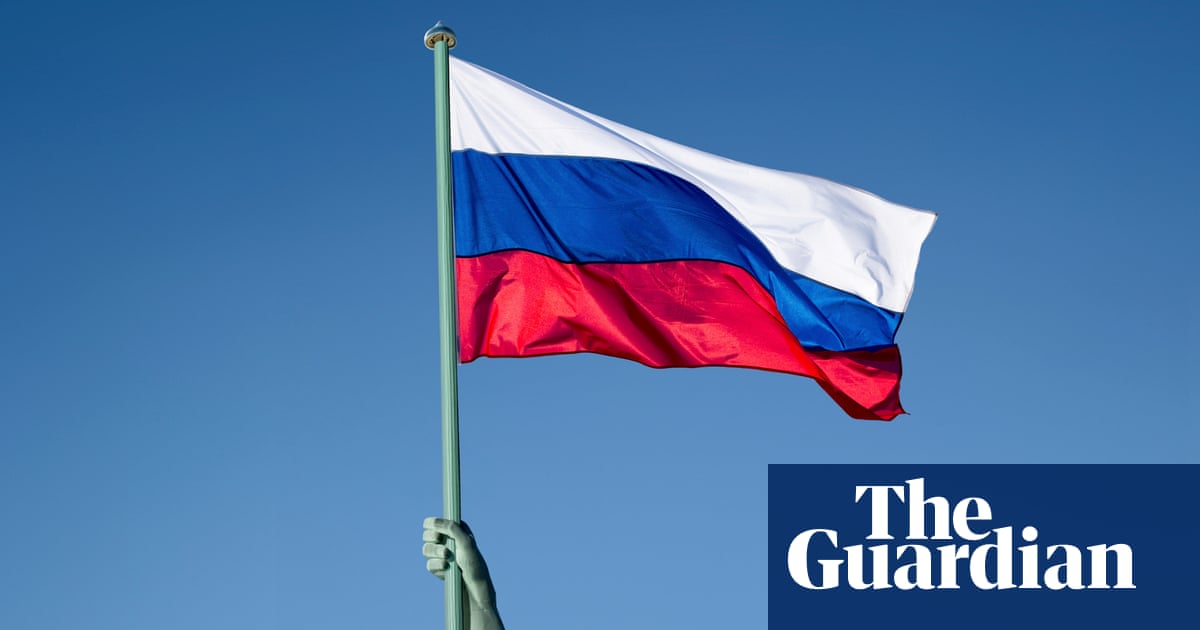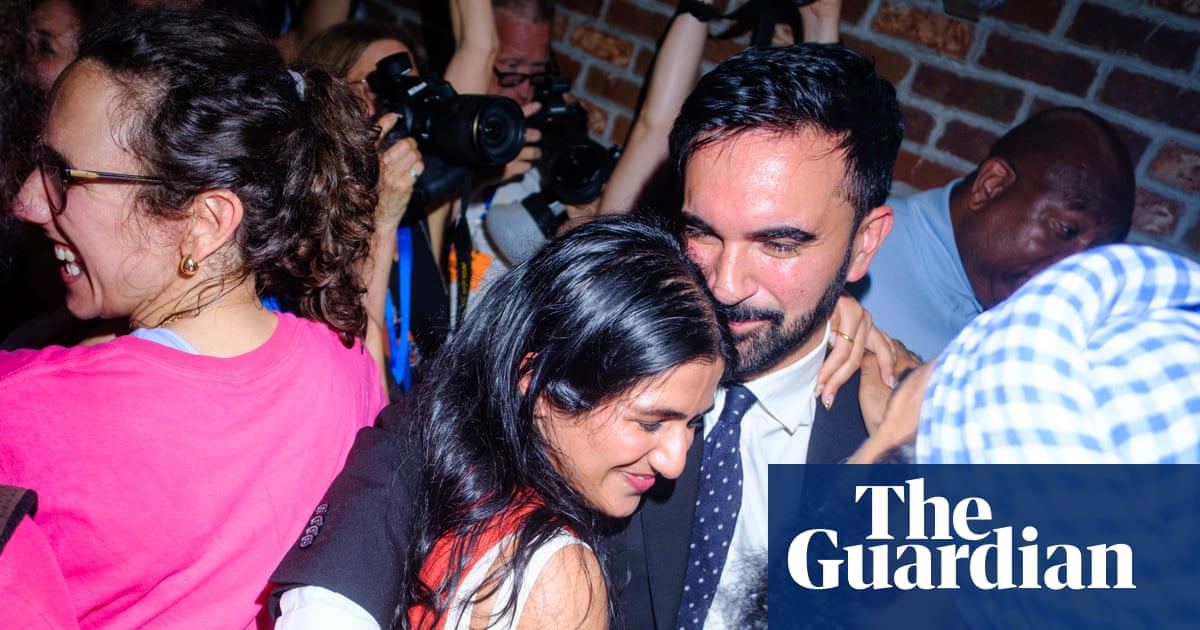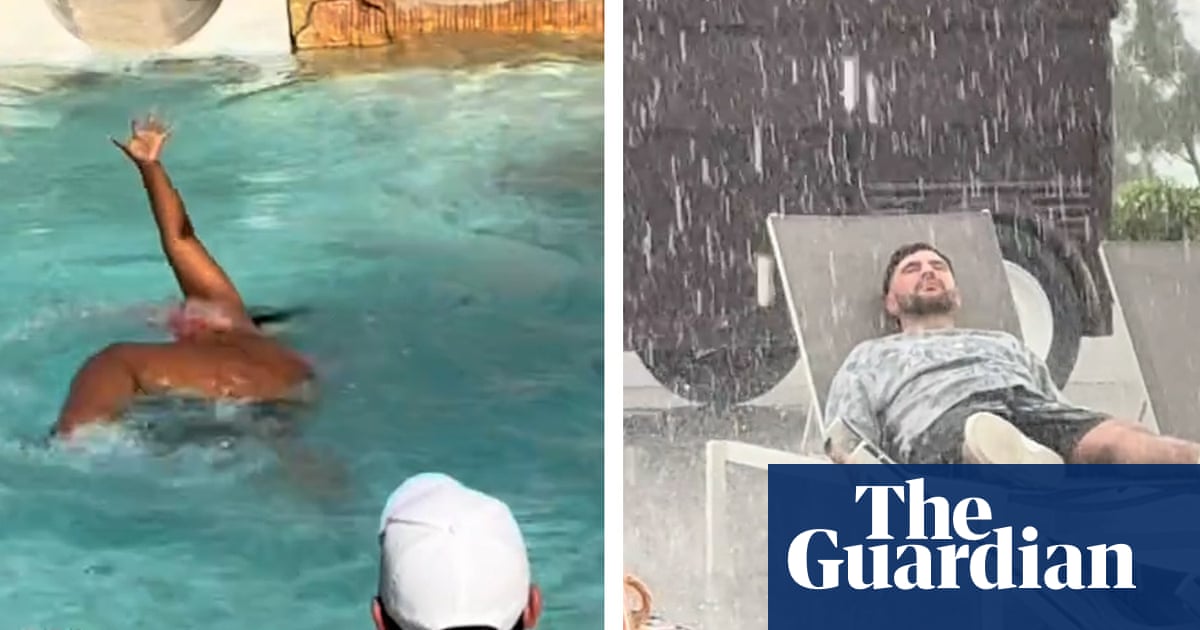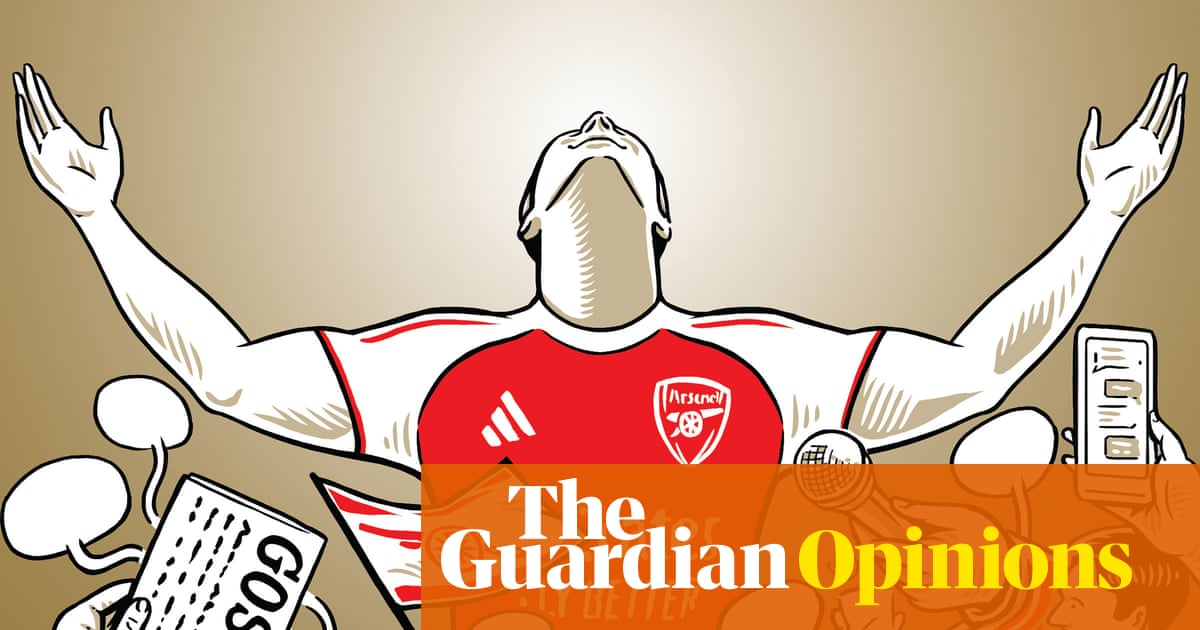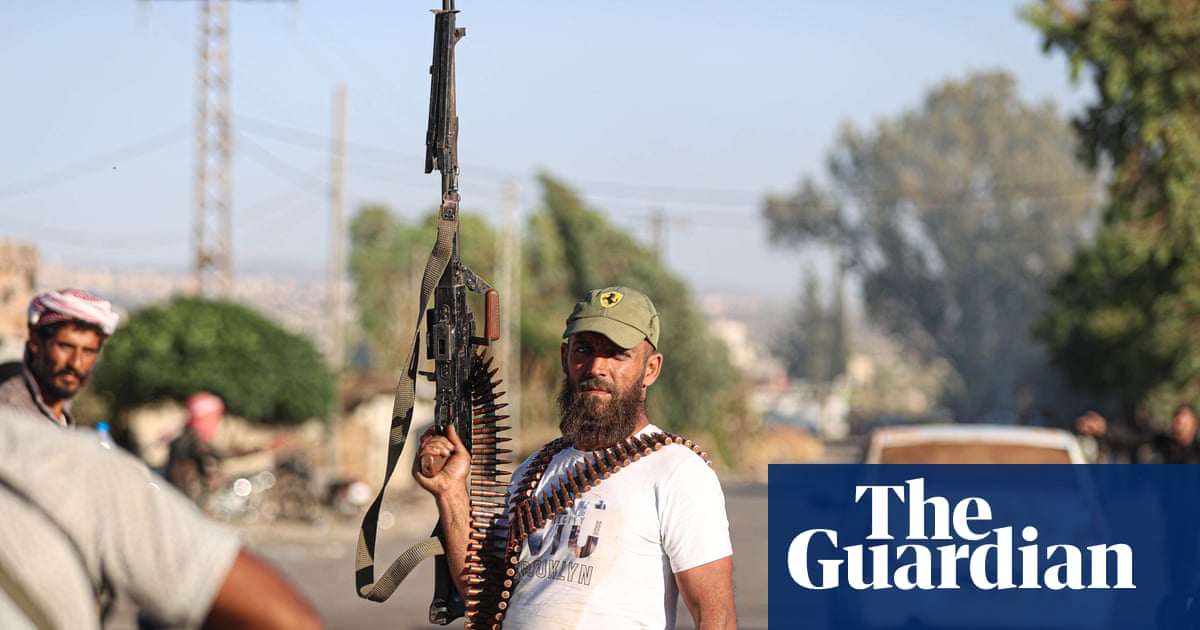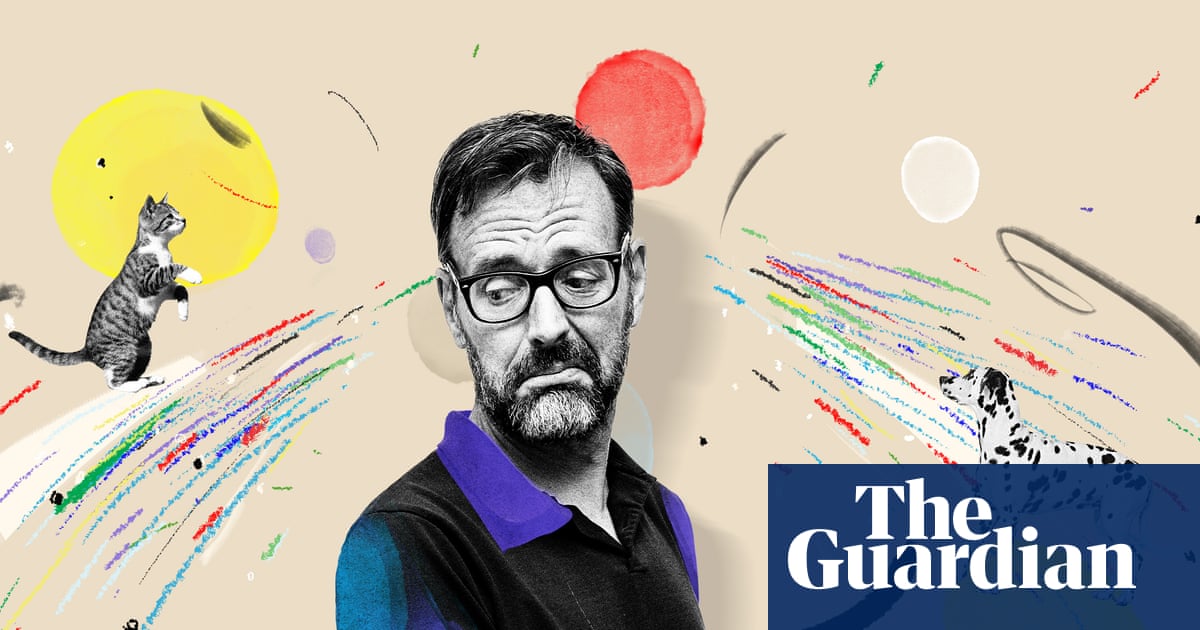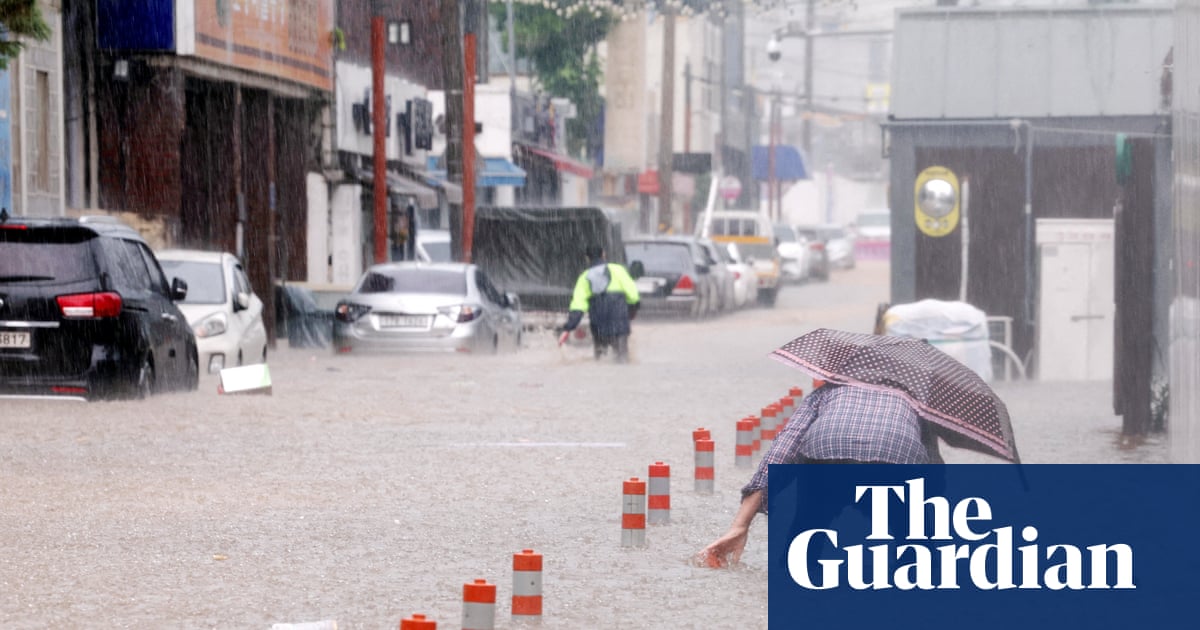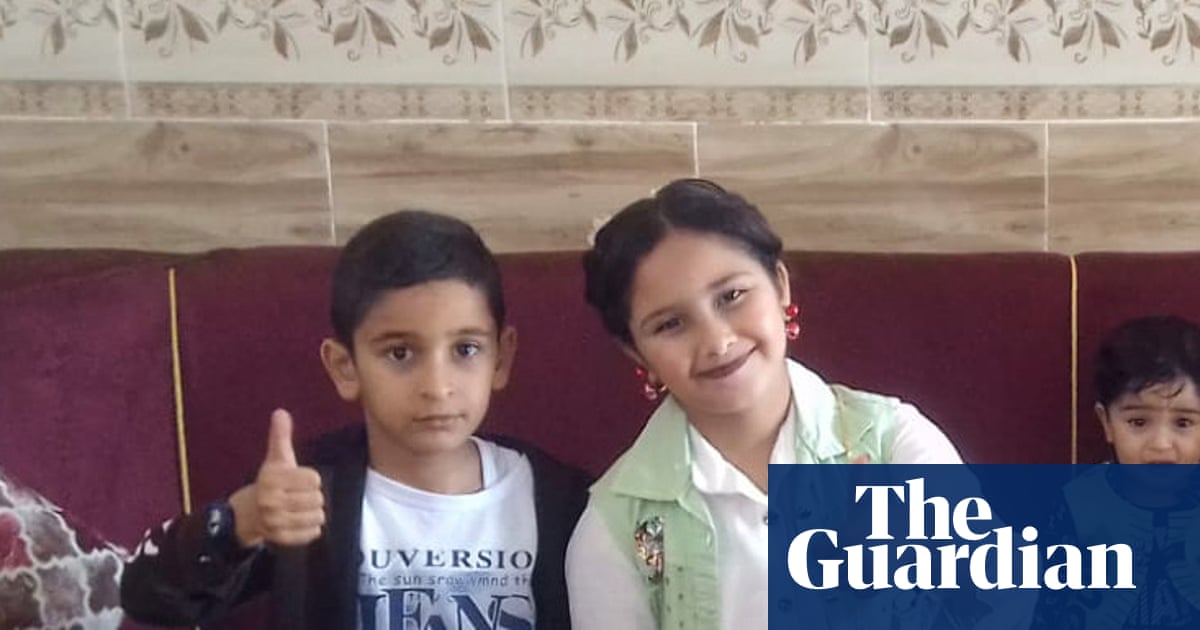A resounding cheer erupted when on Monday three Palestinian teenagers shuffled on to the stage of a convention centre tucked away behind the golden beaches of Australia’s Sunshine Coast.
All of them from the West Bank, they were only half of a team able to attend the International Mathematics Olympiad, a gathering of the world’s brightest young mathematical minds, where medals can offer tickets to any university in the world and launch brilliant careers.
Two of their compatriots from war-ravaged Gaza could not make the journey to Australia and would instead attempt to compete remotely. But this was a marked improvement from last year’s event in England, for which no Palestinian could secure a visa in time.
Yet this heartfelt moment at the 66th IMO opening ceremony was followed by one that hinted at the deep divisions – driven by geopolitics and global conflict – which had played out behind closed doors just the day before and which threatened to unravel the oldest and most prestigious competition of young mathematicians.
The students in the room did not know it, but a jury of delegates from the 114 nations gathered had, the day prior, voted as of the conclusion of the event to lift a suspension applied to Russia’s membership after its 2022 full-scale invasion of Ukraine.
The Ukrainian leaders were distraught, the Estonians and other Baltic nations among the outraged. Their talk had already turned to boycott.
Even in the midst of Russia’s full-scale invasion, Ukraine boasts an astonishing mathematical achievement. The year the war began, in 2022, Russia was suspended from the IMO and Ukrainian IMO students were evacuated. One among them from war-torn Kharkiv, Ihor Pylaiev, won his second gold medal – with a perfect score and a joint top-ranked position in the world. A number of his compatriots also medalled and, after this achievement, would earn scholarships at Cambridge.
Kyiv was supposed to host last year’s maths olympiad. IMO Ukraine team leader Bogdan Rublev said in his country, “the IMO is a very important event”.
Even as war raged, the Ukrainians remained optimistic that the violence would end and they could host the IMO as planned. But, those hopes were officially dashed when Bath was named Kyiv’s replacement.
“It broke our hearts,” Rublev said. “We had worked hard to prepare and we were excited to welcome the world to our country.”
Fellow Ukrainian representative Anastasiia Venchkovska, who was translating for Rublev on the Sunshine Coast, said Russia’s IMO suspension was “not just about mathematics”.
“Russia is not just a country at war, it is a state that systemically targets education, culture and children,” Venchkovska said. “That is terrorism.”
“A country that destroys Ukrainian schools and universities should not sit at the same table as those against whom it commits genocide every day.”
Bid to suspend Israel unsuccessful
The opening ceremony at the Twin Waters Novotel Resort on Monday was well intentioned and, otherwise, good fun. The parade of nations, each with teams of up to six high school students, was determined by the distance each had travelled to compete.
In a room full of sharp minds, it was a bit of sport to guess at the order by which teams would take to the stage and pose for the cameras.
The Moroccans (17,934km) surprised many by being called up first, each in flowing white robes beneath a red fez, before making way for the Portuguese (17,887km), who bounded and hooted up the stairs to form a mini-pyramid. The Norwegians (15,333km) wore black suits, ties and sunglasses inside, the Peruvians (13,117km) football-style red and white trackies. The Iraqis (13,240km) chanted “Lions of Mesopotamia!”, the Aussies (1,030km) “Oi, Oi, Oi!”
The three young Palestinians (14,044km), however, made no spectacle, each briefly clutching their national flag.
Their faces betrayed little emotion. They didn’t have to – everyone in the room understood how much it meant to stand on that stage, knew the life-changing opportunity that platform might provide.
“It was very beautiful,” Palestine team leader Samed AlHajajla said. “The happiness is not complete, it was sad that we couldn’t have all the children.”
“But at least it is good to have half of the team here in person.”
Though few picked who would open the parade, it didn’t take a genius to guess who would follow the Palestinians.
Six young Israelis (14,040km) came smiling on stage, playfully brandishing soft toy otters, the team’s mascot, and two Star of David flags. The cheers and applause fell to a smatter. One or two muttered boos.
Had an effort to suspend Israel’s IMO membership on Sunday been successful, this moment might never have transpired. These six young people could still have competed – but remotely. The Israeli flag, like the Russian, would not have flown on the Sunshine Coast, nor next year at Shanghai.
Instead, the opposite will happen.
after newsletter promotion
‘Mathematics is our primary goal’
The IMO is a tightly choreographed and controlled event: team leaders set the exam questions and so have to be quarantined from their students to prevent cheating.
Before being whisked away to the leaders’ site at a resort in Noosa, IMO board president Gregor Dolinar briefly answered questions about the jury meeting which resolved to lift Russia’s suspension.
He described it as a “long and constructive” discussion from which the main message was that “we want to stay out of politics as much as possible”.
“We exchanged our views and we said that our primary goal is to enable as many kids from all around the world to come to the same place and to give them this opportunity to show their talent,” Dolinar said.
“So mathematics is our primary goal – if we will start to be involved in politics, we do not know where to draw the line”.
The jury meeting began with AlHajajla and lasted several hours.
The Palestinian team leader spoke with passion about the ordeal of his country’s representatives, in particular those trapped amid the horrors of Gaza.
Other nations, particularly those from the global south, agreed and spoke in support of the Palestinian motion to suspend Israel.
Dolinar made several arguments as to why the IMO should remain, nonpolitical. Among them was that being political was bad for business. The sponsors that the non-profit organisation needed to finance such a logistically complicated event, he warned, did not want to deal with politically motivated organisations.
The IMO board put forward its own motion which proposed that measures only be taken against a member for breaking IMO regulations – for widespread cheating, say. All current suspensions – only Russia – would expire at the end of the Australian event.
This caught many by surprise – restoring Russia’s membership was not in the agenda.
But the motion passed with a secret ballot of 62 in favour to 23 against, with six abstentions.
Israeli team leader Dan Carmon said it was “the right choice for the IMO at this time”, adding that the organisation – which is run by volunteers – spent a lot of time in the lead up to the event discussing its stance on political matters.
“I think it will be much better for the IMO, and the fostering of young minds everywhere, that we are now focusing on inclusivity instead of excluding students and countries,” Carmon said. “I think that is a much better direction for the IMO to go in order to promote the love of mathematics in the world and promote brotherhood between nations.”
Far from brotherhood – for Rublev, Venchkovska and the Ukrainians – even sharing a stage with the Russian flag was “impossible and unacceptable”.
“We came here not only to compete but to remind the world that, behind every problem we solve on paper, there is a much bigger problem we are living through in reality,” they said. “We ask the international community to stay consistent, to stay principled and to stand with Ukraine”.
Estonian team leader Oleg Košik said his was among the Baltic nations who made clear in 2022 that they would do so
“We see the continuous barbaric aggression of Russia against Ukraine,” Košik said.
“The constant bombings of cities, innocent civilians being killed every night. If the IMO will say now, ‘OK, this is fine, we don’t care about it’ – what message does it send to the whole world?”

 8 hours ago
5
8 hours ago
5
